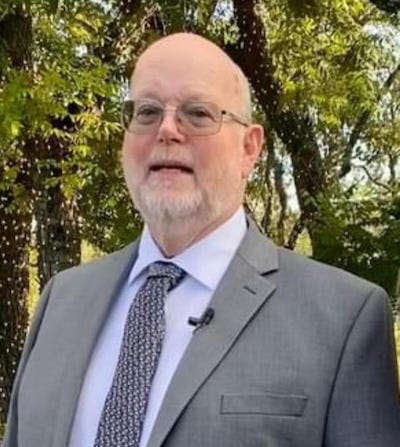My friend of 45 years died on August 27th. Two weeks earlier he suffered a series of small strokes, apparently triggered by a severe bacterial infection and had been generally unresponsive afterward.
He had written me on August 7th to congratulate me on my book info going public. After a couple of exchanges back and forth, I suggested a Zoom call for the next day. It was great to catch up, as it has been every time we got together. His strokes came mere days later. I’ve scheduled this to post on Friday while I’m on my way to his funeral.
The first time I ever knew anything about Mike Roberts was at a Northwest Indiana district assembly of the Church of the Nazarene. Mike had just become the pastor of the church in West Lafayette (we attended the church across the Wabash in Lafayette). As he got up to introduce himself, he said “I have a seminary degree and additional masters degrees. I moved from Garrett, Indiana to West Lafayette and lowered the median education level of both communities.”
Shortly thereafter, my major professor told me “We’ve got another Nazarene in the program.” Turned out that one of the benefits of Mike’s relocation was that he could work on a doctorate in sociology. Even though he was in the cohort behind mine, we became fast friends, even sharing a mailbox in Stone Hall.
Because he was an alum of Olivet Nazarene, where my wife attended and I eventually went to teach, there was almost nothing we couldn’t talk about: the local church, the denominational politics, higher education, and, of course, sociology.
In Mike’s second year and my third, Mike’s major professor landed a Lilly Grant to study Campus Ministry in the state. Jim put together a research team, adding Mike, me, and my major professor Ray. We travelled the state, did interviews, and wrote reports (Mike and I each got first billing on two of the reports). We were full members of the team and not just helpers. It was a great experience (even though Jim wouldn’t stop for lunch).
Somewhere in there, we pitched a research project to the folks at Olivet. There was a regional pastors’ gathering coming up and we thought it would be a great opportunity to gather interesting data. We made a trip to campus to see, but the administration didn’t go for it. However, it connected me to the sociology department there which led to my job offer when the junior member quit.
Three years into my time at Olivet, the president asked the sociology department to conduct a survey of students at Nazarene colleges. I gathered data from 5800 students at six of the Nazarene schools. Mike helped me clean and analyze the data.
We co-authored a presentation at SSSR in 1984. In that session, the respondent was someone critical of our methodology (which had its limitations since it was done on the cheap). I was shocked when none other than Charles Glock (IYKYK) came to our defense.
I will always remember a road trip we took, along with another sociologist, to a Christian sociology gathering at Covenant College outside Chattanooga. It was a long drive, she was a little different, and the conference was just okay.1
A few years after I took the Olivet job, Mike began teaching at Eastern Nazarene College in the Boston area (which announced its closure this summer). Mike made good use of the Boston area and introduced sociology to scores of students, especially those who needed some support.2
During these years, we both became active in the Association of Nazarene Sociologists and Researchers (ANSR). We presented papers, helped design research strategies, and offered insights on denominational planning (which was generally ignored). We pushed for years for the group to act like sociologists instead of taking the safe route in support of denominational leaders. There were some great speakers at these meeting and a handful of atrocious ones. Since we always roomed together, conversations lasted into the early morning over our frustrations, the speakers, and what was going on in our respective institutions.
As I moved into administration, we would regularly talk about what was happening with his administration and how it affected him. As a good sociologist, Mike often stood on principle regarding perceived injustice. That made life at ENC harder over time and he moved to Eastern University outside Philadelphia for the remainder of his career. He helped build a strong department by bringing in our mutual friend John Montiero (who had been my student at Olivet). Since this was the department that Tony Campolo once called home, that was pretty impressive.
Mike retired from Eastern the year before I retired from Spring Arbor and moved to be near family outside of San Antonio. Mike and Kay came to see us in Colorado (and learned that April is still cold in the mountains!).
It seems that our lives have run on parallel tracks since the late 1970s. Sure, I went into administration and then returned to the classroom. He served as a minister and then a college professor.
Mike was one of those dear friends who, regardless of how long it had been since our last conversation, we were telling old stories in mere moments and sharing our concerns about church, denominations, Christian higher education, and sociology. It was a blessing to have one of those conversations last month and I can’t believe that another one isn’t just around the corner. I will miss him dearly.
Mike hosted that conference in 2011 at Eastern University and I was glad to be able to attend.
The Olivet Nazarene president once called me “a lightning rod for the disenfranchised”, a title I have proudly embraced. I’m sure Mike played a similar role.


